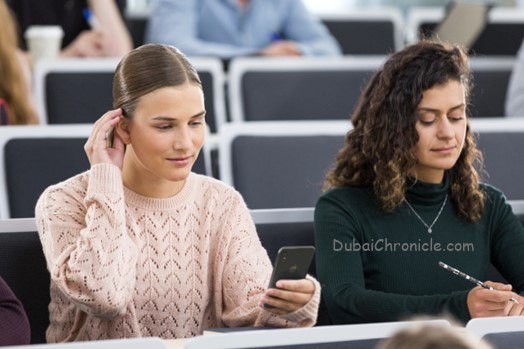[ad_1]

Transforming the university experience with assistive listening over Wi-fi
As the digital transformation of post-secondary education rapidly advances, assistive listening systems that use Wi-fi are growing ever more relevant. While not yet mainstream, the technology offers many advantages that place it far ahead of traditional solutions in the field.
Worldwide, tens of thousands of students with a hearing impairment attend university – often with legislation that mandates that technical equipment is provided to ensure their full inclusion. With easy access to Wi-fi having become students’ most important tech resource for studying, the move towards Wi-fi based assistive listening systems such as MobileConnect from Sennheiser is the logical next step.
In terms of installation, usability and student acceptance, traditional assistive listening systems present several shortcomings, be it labor-intensive installation of induction loops or the risks of sharing IR or FM devices during pandemics. Most importantly, however, these solutions make students feel excluded, exacerbating “feelings of loneliness, isolation and frustration” that the WHO cites as emotional impacts of hearing loss. With WHO projecting a significant uptick among hearing loss in children between now and 2050, this issue’s importance is only increasing.
Assistive listening over Wi-Fi, on the other hand, works simply and effectively: The lecturer speaks into a microphone, the audio signal travels to an AV station and is broadcast via the existing local Wi-fi network. Students can use their own smartphone with confidence to listen via an app, freeing them to sit anywhere they like.
Besides low cost of installation and maintenance, Wi-fi based systems are easily scalable and integrate readily with existing AV equipment. IT and AV managers can make system adjustments as needed using a software-based manager – but in many ways, assistive listening systems over Wi-fi are a set-and-forget solution.
Jakub Kolacz, Sennheiser’s Manager Product and Commercialization for MobileConnect, said: “Like so many others, we wish for a world where all people can be connected to each other and able to make the most of the opportunities that lie before them. This includes unrestricted access to information and teaching. With MobileConnect, we offer a fully inclusive, Wi-Fi-based assistive listening solution for the campus infrastructure of modern universities. With individually adjustable, lip-sync audio for as many as 100 students per room, it provides a productive, inclusive learning environment for higher education institutions.”
[ad_2]
Source link
